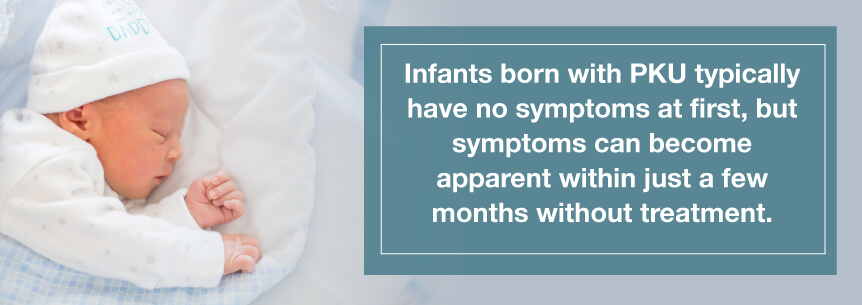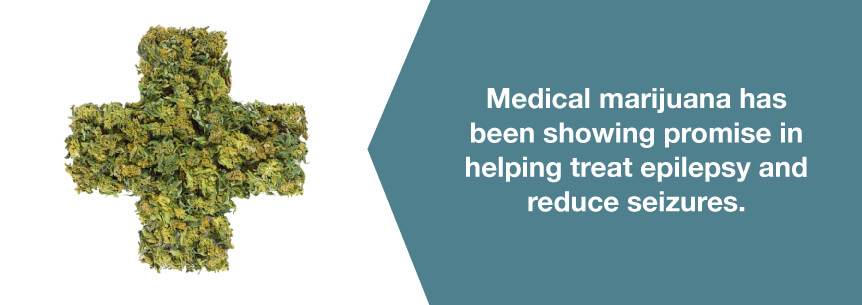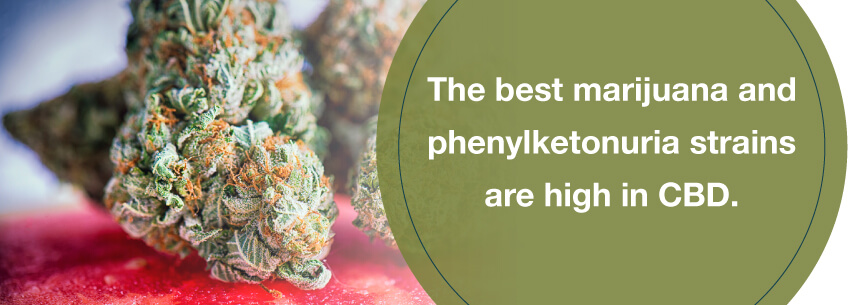
Phenylketonuria, or PKU, is an uncommon inherited disorder in which the body can’t process part of a protein known as phenylalanine in the blood. This amino acid metabolism disorder is present at birth and can lead to behavioral problems, intellectual disabilities, seizures and more.
While the side effects of PKU can be severe and there is no cure, treatment options exist if your child has a PKU diagnosis.
PKU is a rare inherited metabolic disorder that inhibits the body’s ability to break down the amino acid phenylalanine (Phe). When Phe levels get too high, it prevents neurotransmitters in the brain, such as dopamine and serotonin, from functioning properly. That leads to a host of problems, including side effects such as having difficulty concentrating, experiencing behavioral problems and dealing with depression. Phe can also be toxic to the brain.
All babies receive a PKU newborn screen test, called a serum phenylalanine screening, though a blood sample collected from their heel. When physicians have diagnosed an infant with the condition, early treatment is possible.
If doctors test a baby before it has been outside the womb for a full 24 hours, they may miss a PKU diagnosis. Therefore, experts recommend a baby should be at least be a full day old before getting screened for PKU, and preferably within 48 to 72 hours following birth.
A baby who has PKU will require testing of their phenylalanine levels at least once per week, or more frequently during their first year of life. Beginning after their second birthday, testing can decrease to once or twice per month, and continue at this frequency throughout childhood, as long as no complications arise.
Infants born with PKU typically have no symptoms at first, but symptoms can become apparent within just a few months without treatment. The symptoms of PKU tend to develop slowly over time and may even be difficult to recognize.

Signs of PKU can be mild to severe and include:
Complications of PKU, depending on adherence or non-adherence to diet, include the following:
PKU comes in several forms, depending on the severity of the disorder. The most severe type of PKU is called classic PKU. With this form of the condition, the enzyme necessary to convert Phe is significantly reduced or completely missing, which causes high Phe levels and brain damage. Classic PKU is the result of two severe mutations of the Phe hydroxylase gene.
There are also less severe forms of the condition in which the enzyme can function somewhat, and Phe levels are not too high.
PKU is the result of a defect in the gene that creates an enzyme necessary to break down the phenylalanine protein. Without this enzyme, the protein builds up in the body when someone with PKU eats foods that contain the protein, like meat, cheese, aspartame and some grains.
To inherit PKU, both parents must pass on the defective gene. If only one parent is a carrier with the defective gene, the child can’t have PKU, but can be a carrier.
With PKU, your diet will directly impact how your brain functions. PKU is a lifelong condition that requires a special diet to avoid consuming Phe. Management of the disorder must begin as soon as possible to prevent damage to an infant’s developing brain.
When doctors don’t treat PKU, it can lead to severe birth defects, irreversible brain damage, severe intellectual disability, neurological problems, behavioral problems and other major health issues.
When they properly manage their disorder, people with PKU can lead healthy lives free of these symptoms, although it does require a lifelong commitment.
Doctors discovered PKU in 1934 when a mother searched for answers for her children’s unexplainable disabilities. Borgny Egeland of Norway had two children in the late 1920s, both of whom struggled to walk and eat on their own and learned just a few words by the time they were 4. At the time, society considered mentally disabled people beyond hope and sent them to mental institutions, but Egeland’s husband had a conversation with a doctor specializing in physiology and metabolism named Asbjørn Følling, who provided a crucial clue.
Følling consulted with Egeland and examined the children, expecting nothing out of the ordinary. When he examined the children’s urine, he found it appeared normal on chemical tests except for its musty odor. When he tested the urine using the Gerhardt test, which usually indicates diabetes complications, the children’s urine turned deep green — a reaction no one had ever seen before.
After weeks, Følling found a way to extract, isolate and purify the unknown substance in the children’s urine. He eventually determined the substance was phenylpyruvic acid, a keto acid not typically found in urine. He completed later studies and developed a screening tool to detect the disease. As a metabolic specialist, he also concluded the compound was likely causing a metabolic problem.
More than a decade later, a British geneticist named Lionel Penrose expanded on Følling’s discovery and created an appropriate meal plan for people with PKU. This diet was initially challenging, as Phe is in so many foods, including most sources of protein. Near the end of World War II, researchers discovered a suitable protein replacement. A chemist named L.I. Woolf worked on a milk protein called casein and broke it down into its amino acids to create a pre-digested food for starving people. This method of hydrolyzing casein could finally create a Phe-free formula.
PKU statistics include:

When a physician diagnoses an infant with PKU, the child needs to follow a diet that limits phenylalanine for the rest of their life. This amino acid is present in most foods with protein, as well as artificial sweeteners. Experts recommend starting this special diet within the first 10 days of the baby’s life. Medical professionals monitor children with PKU throughout their development to ensure no nutritional or growth deficiencies occur.
The goal of treatment is developing a special diet that keeps blood Phe levels within two and six milligrams. A careful diet can prevent the most severe signs of the disorder, such as intellectual disability and neurological problems.
PKU patients will need to continue their special diet for life, not just during childhood. However, PKU meal plans vary for each person and over time, depending on the phenylalanine levels.
Infants with PKU must consume a special Phe-free medical formula, while children and adults must eat a low-protein diet without artificial sweeteners. Doctors may also prescribe a medication with BH4, a substance the human body produces naturally, but which PKU patients may not make enough of. BH4 supplements can help break down Phe before it builds up to dangerous levels.
Because PKU is a lifelong condition, medical professionals use a multidisciplinary approach to both testing and treating the disorder. Therapies and treatments require a dedicated medical team, including physicians, nurses, nutritionists, dietitians and laboratory technicians. Psychologists and social workers also work with children with PKU.
A Phase I clinical trial found patients had well-controlled phenylalanine levels when taking a product called BetterMilk™. Gregory Rice, MD, an assistant professor at the University of Wisconsin’s division of genetics and metabolism, and clinical dietitian Sandy van Calcar developed BetterMilk as part of a research team. The formula contains glycomacropeptide, a natural protein with only trace levels of phenylalanine.
BetterMilk is now on the medical formulary in six states. The research team is also hoping to further evaluate the formula in longer-term studies, as they applied for a Phase II clinical trial.
Another study examined a new medical food consisting of large neutral amino acids. The results of the research revealed nearly 60 percent of the patients had a meaningful decline from baseline in their blood Phe concentrations.
Research shows marijuana can help control seizures, which occur in patients with PKU. Laboratory study evidence, small clinical studies and anecdotal reports suggested years ago that cannabis’ nonpsychoactive compound, cannabidiol, could potentially assist in controlling seizures. However, limited research is available, since federal regulations, increased time and financial constraints are all factors that prevent researchers from having a lot of access to cannabis.
U.S. researchers are studying the drug Epidiolex, which derives from CBD. In one study, researchers gave 214 participants Epidiolex for 12 weeks. These participants weren’t responding to the current treatments. Fifty-four percent of the participants showed a decrease in their seizures.
Sadly, various types of antiepileptic drug therapy, surgical intervention and going on a ketogenic diet have not been able to keep some young patients’ seizures under control. Their parents are increasingly turning to medical marijuana and phenylketonuria treatment for some hope.
In 1970 animal studies, researchers found CBD helped control seizures in acutely induced mice with its anticonvulsant effects. Medical marijuana has been showing promise in helping treat epilepsy and reduce seizures.

CBD has successfully passed through the required pharmacology and safety trials in humans with very few concerns or issues. CBD has no significant adverse reactions, and patients tolerate the side effects well — which has not been the case with antiepileptic drugs.
Doctors still do not entirely understand how medical marijuana for phenylketonuria works. However, the idea of using marijuana’s compounds to treat seizures is gaining popularity. Researchers confirm its effectiveness, and have even figured out what strength to give and how. Each plant varies in potency. You can alter the strength by inhaling cannabis for phenylketonuria, rather than eating it.
For one little girl suffering from seizures, all it took was six weeks of cannabis oil rubbed on her gums and tongue to make her seizures stop altogether.
The symptoms medical cannabis for phenylketonuria can help relieve include:
A breakthrough in medical weed is knowing it may protect against nerve damage and even reverse it in some cases. Since medical pot is what physicians call a “neuroprotectant,” anyone who struggles with seizures from phenylketonuria can benefit from it.
CBD helps calm your body when you’re suffering from tremors. Relieving tremors helps patients live a better quality of life. Individuals can go about their everyday activities without the irritations of shaking and tremoring. And, even as it seems it’s only relieving the shaking and tremors, it’s doing much more. CBD also helps with nerve inflammation and repairs damaged nerves.
Young adults undergoing phenylketonuria treatment present an interaction between anxiety, depression and stress levels and biochemical regulation when trying to maintain dietary control.
Marijuana has long been known to curtail anxiety and help with depression, which individuals with phenylketonuria may experience.
The best marijuana and phenylketonuria strains are high in CBD.

Therefore, some good cannabis and phenylketonuria strains that are powerful for helping fight seizures and cure nerve pain include:
Strains beneficial for depression and anxiety include:
Some proposed healthier ways of receiving your marijuana for phenylketonuria without the risks associated with other cannabis consumption practices are:
Looking to learn more about how medical marijuana for phenylketonuria can help you? At Marijuana Doctors, we provide you with all the resources you need to become informed and make a good decision about whether or not medical weed is right for you.
Here, you can find out the latest news on marijuana, find dispensaries to buy cannabis products and connect with qualified medical marijuana doctors locally. Be sure to book your appointment today.
Find A Doctor Find A Dispensary